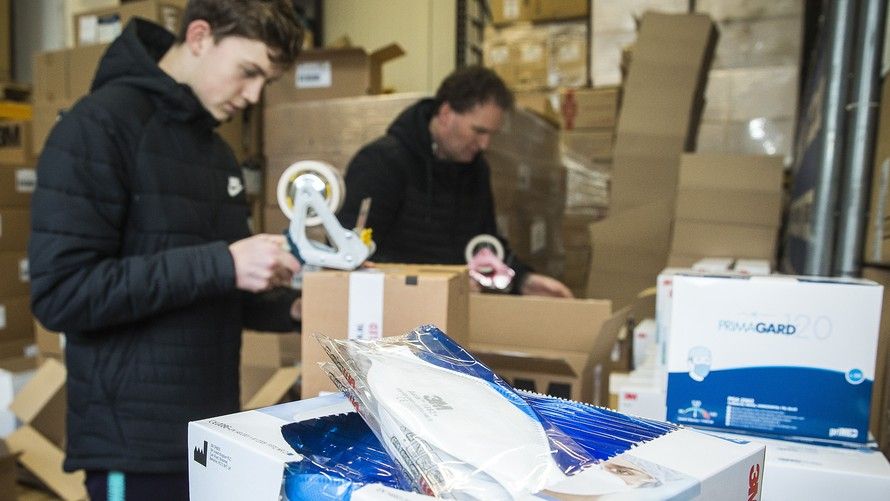You can now get quick access to all official coronavirus resources on top of Google Search.


Remember the first time you tried Apple’s Siri and went absolutely gaga over the human-like qualities of the application? Well, then came Amazon’s Alexa, a virtual assistant AI that was first available in the Amazon Dot and Amazon Echo Dot speakers but none of these were conversational as such. Although they can answer general questions about the weather and news, it will never feel really conversational.
Google, however, has in store something more conversational than the existing Siri, Alexa and Cortana in the form of its new chat companion, Meena. The company claims that it is going to be the best chatbot in the market that can talk with the user about anything on earth.
As per Google, Meena is a neutral network has about 2.6 billion parameters. “We present Meena, a multi-turn open-domain chatbot trained end-to-end on data mined and filtered from public domain social media conversations. This 2.6B parameter neural network is trained to minimize perplexity, an automatic metric that we compare against the human judgement of multi-turn conversation quality,” Google said in a blog post.


A vaccine designed to combat severe acute respiratory syndrome (SARS) and technological advances in vaccine platforms are likely to quicken the time it will take to develop a vaccine for the novel coronavirus that has killed at least 132 people and sickened nearly 6,000 others.
“I’m reasonably confident that within three months or less we’ll be in a Phase 1 trial” for a coronavirus vaccine, which would be record speed for this type of trial, Dr. Anthony Fauci, director of the National Institute of Allergy and Infectious Diseases (NIAID), said during a Tuesday video interview with the medical journal JAMA. It took 3.2 months to get a Zika vaccine into trials, he added.

Though scientists and doctors around the world are trying to tackle the epidemics, there’s actually no cure or vaccination for saving patients from this deadly virus. However, Dr. Thanikasalam Veni, an Indian doctor who pays attention to Ayurveda and Siddha medicine, has created an herbal cure made from several plants in search of shutting down the invasion of Wuhan Coronavirus before it threatens more lives.
According to Dr. Thanikasalam, his cure basically consists of herb extracts, focusing on easing viral fever. Because experts have yet to come up with real Corona remedies, it’s considered an effective way to treat dengue, multi-organ failure as well as acute liver fever. With the availability of this new method, patients reportedly need to take just about 24–48 hours of curing to withstand the coronavirus infection.
In a statement, the Indian doctor said he aims to notice both the Chinese government and the World Health Organization (WHO) about the effectiveness of such herbal extract medicine for the multi-organ failure once a person has to suffer corona fever condition in most cases, which can result in his death.


On Monday scientists called for advanced technology as the current use of aircraft to spray the pests is proofing to be futile amid growing concerns over their rapid spread.
The experts say deployment of superior technologies such as drones could hold the key to successful combat of the locusts that are now threatening food security in the country.
However, with regulations guiding drones in the country yet to be approved, use of the technology may not be possible as at now.

“Imagination is more important than knowledge.”–Albert Einstein.

Essentially you could at this point make a working protoss carrier o.o
Carriers are a late-game Protoss air unit that are the largest and most costly unit available for Protoss. Carriers are produced from the Stargate and requires a pre-existing Fleet Beacon. Carriers have the highest armor, health, and shields of the Protoss race. Their main advantages are their long range and mobility in combat; this potentially incredibly long range is especially notable as unique among Protoss units. On the other hand, their raw attack power is rather low for their price. Perhaps their greatest use is in extreme late-game where their supply efficiency for their staying power is usable, much like Battlecruisers; however, they are hard-countered by the latter since they make volleys of low-damage attacks and due to the Yamato Gun.
Carriers themselves do not, in fact, possess any attack, but like Reavers build and transport unique units –Interceptors in this case- to much the same effect. A Carrier does not come equipped with any Interceptors when first warped in, so it must construct them individually, adding quite a deal of cost and build time to the finished unit. Unlike the Reaver’s Scarabs, however, the units it builds do not immediately sacrifice themselves to attack but attack as would another unit stacking up on a target that it “fires” at until recalled at which point they may still be used again. While targetable, expensive and fairly weak individually Interceptors move quickly around targets, potentially out of range, and can recharge shields instantly upon being recalled meaning they can overwhelm targeted forces (although potentially very, very slowly). Interceptors are all destroyed if the Carrier itself is destroyed.